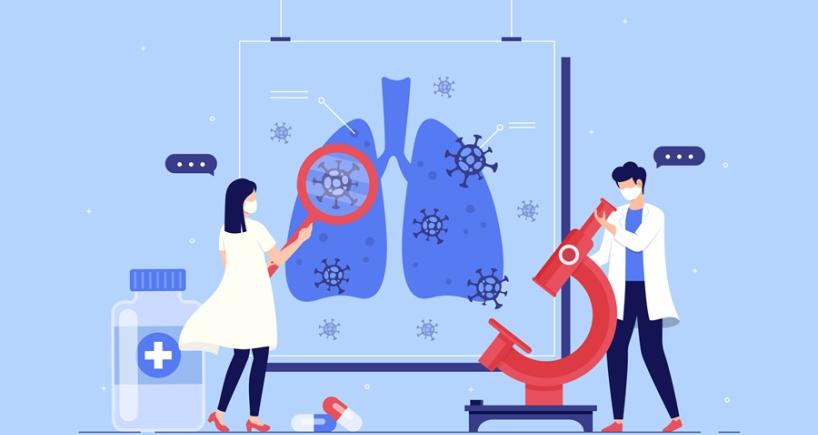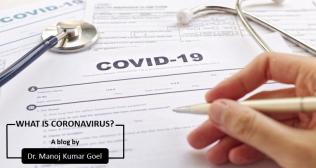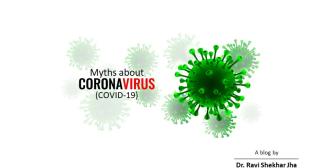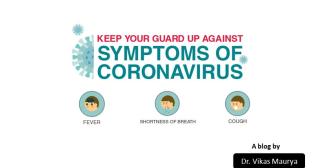
Understanding the Diagnosis and Management of Rare Lung Diseases
Introduction
Rare lung diseases encompass a diverse group of respiratory conditions that pose significant challenges due to their infrequent occurrence and complex nature. Living with a rare lung disease presents numerous challenges, from navigating a maze of symptoms to finding adequate medical care. One significant hurdle is the delay in diagnosis, often stemming from limited awareness of such conditions. In this blog, we’ll delve into rare lung disease types, symptoms, and treatments.
The Burden of Rare Lung Diseases
Rare lung diseases present a formidable challenge, characterized by delayed diagnosis, limited treatment options, and barriers to accessing expert care. These conditions, stemming from genetic mutations or environmental factors, can emerge early in life or later, affecting vital lung structures and complicating management. Despite the varied causes, most rare lung diseases share a common outcome: Damage to vital lung structures such as air sacs, bronchial tubes, or surrounding tissues.
Signs and Symptoms
While each rare lung disease presents distinct characteristics, they frequently exhibit common signs and symptoms, including:
- Poor growth or weight gain
- Rapid or labored breathing
- Chronic or recurrent cough, wheezing, or abnormal breathing sounds
- Exercise intolerance or difficulty breathing while eating (in infants)
- Frequent respiratory infections
- Respiratory distress or breathing difficulties at birth
Additional symptoms are specific to each condition.
Types of Rare Lung Diseases
- Idiopathic Pulmonary Fibrosis (IPF): IPF results in lung scarring, making breathing increasingly difficult. While its exact cause remains unclear, it predominantly affects individuals aged 70–75, rare in those under 50. Although therapies exist to slow its progression, there is currently no cure to halt or reverse the scarring.
- Pulmonary Hypertension: Pulmonary hypertension is a rare, progressive disorder marked by high blood pressure in the lungs’ arteries without an identifiable cause. Symptoms include dyspnea, chest pain, and fainting, often affecting women aged 30–60. Treatment aims to manage symptoms and slow disease progression through medications and lifestyle changes.
- Lymphangioleiomyomatosis (LAM): Primarily affecting women, LAM causes abnormal lung cell growth, leading to cyst formation and lung function decline. While its exact cause remains unknown, LAM is linked to mutations in specific genes. Symptoms include chest pain and shortness of breath, with treatment involving pulmonary rehabilitation, bronchodilators, and hormone therapy.
Rare Lung Diseases Specific to Gene Mutations
A group of rare lung diseases arise from mutations or gene deletions crucial for maintaining the lungs’ surfactant balance. Surfactant plays a crucial role in reducing surface tension within the alveoli, ensuring the efficient functioning of the lungs. Here are some of the most frequent surfactant dysfunction disorders:
- Surfactant Protein B (SP-B) Deficiency: Caused by mutations in the SFTPB gene, this disorder results in inadequate production of surfactant protein B, leading to respiratory distress and lung dysfunction.
- Surfactant Protein C (SP-C) Deficiency: Mutations in the SFTPC gene cause deficiency in surfactant protein C, resulting in impaired lung function and respiratory distress syndrome.
- ATP Binding Cassette Transporter A3 (ABCA3) Dysfunction: Mutations in the ABCA3 gene lead to dysfunctional ABCA3 transporter proteins, which play a vital role in surfactant metabolism. This dysfunction can result in a severe lung disease, particularly in newborns.
- Brain-Lung-Thyroid Syndrome: Mutations in the thyroid transcription factor genes (TTF1/NKX2-1) lead to this rare syndrome, characterized by lung, brain, and thyroid abnormalities.
- Pulmonary Alveolar Proteinosis (PAP) in Adults and Older Children: While most cases of PAP are sporadic, some result from autoimmune dysfunction, particularly the production of GM-CSF autoantibodies. Other causes include alveolar macrophage dysfunction due to conditions like HIV, leukemia, organ transplantation, autoimmune disorders, or exposure to toxic substances.
Diagnosis
Diagnosing rare and genetic lung diseases poses significant challenges due to overlapping symptoms and the need for specialized testing. Many of these conditions may mimic more common diseases, like asthma, leading to misdiagnosis. Early and accurate diagnosis is crucial, as it guides treatment strategies tailored to the underlying cause of the disease. Some of the standard diagnostic procedures include:
- Medical history review
- Imaging tests
- Pulmonary function test
- Biopsies
Treatment
Currently, many rare lung diseases do not have a cure, and the treatment choices are few. Nevertheless, several strategies focus on controlling symptoms, delaying disease advancement, and enhancing the general quality of life for those affected.
Medications
- Pirfenidone and Nintedanib: These two medications are approved for use in certain rare lung diseases, like idiopathic pulmonary fibrosis (IPF).
- Symptom Control: Medications may be prescribed to manage specific symptoms, such as cough, although their effectiveness in improving the quality of life is still being explored.
Supportive Treatments
- Oxygen Therapy: Supplemental oxygen can be administered to enhance oxygen levels and relieve the symptoms of hypoxia.
- Immunizations: Immunizations against pneumonia and influenza are recommended to minimize the risk of respiratory infections, which can worsen lung disease.
Individualized Approaches
- Tailored Therapies: Treatment plans are personalized based on the type of rare lung disease and individual patient needs. This may include adjustments in oxygen therapy, nutritional support to promote weight gain and growth, and specific medications tailored to the underlying condition.
- Annual Flu Shots: Routine administration of flu vaccines is crucial to prevent respiratory infections, which can harm individuals with compromised lung function.
- Lung Transplantation: In end-stage or progressive disease cases, where other treatments have failed, lung transplantation may be considered a therapeutic option. This procedure offers hope for improved quality of life and extended survival for eligible patients.
Conclusion
Rare lung diseases pose significant challenges, but patients can manage their conditions effectively with early diagnosis, comprehensive treatment, and ongoing support. By raising awareness, expanding support resources, and advancing research, we can improve outcomes and enhance the lives of individuals affected by these complex respiratory disorders.
Popular Searches :
Hospitals: Cancer Hospital in Delhi | Best Heart Hospital in Delhi | Hospital in Amritsar | Hospital in Ludhiana | Hospitals in Mohali | Hospital in Faridabad | Hospitals in Gurgaon | Best Hospital in Jaipur | Hospitals in Greater Noida | Hospitals in Noida | Best Kidney Hospital in Kolkata | Best Hospital in Kolkata | Hospitals in Rajajinagar Bangalore | Hospitals in Richmond Road Bangalore | Hospitals in Nagarbhavi Bangalore | Hospital in Kalyan West | Hospitals in Mulund | Best Hospital in India | Gastroenterologist in Jaipur | Cardiology Hospital in India
Doctors: Dr. Rana Patir | Dr. Rajesh Benny | Dr. Rahul Bhargava | Dr. Jayant Arora | Dr. Anoop Misra | Dr. Manu Tiwari | Dr. Praveer Agarwal | Dr. Arup Ratan Dutta | Dr. Meenakshi Ahuja | Dr. Anoop Jhurani | Dr. Shivaji Basu | Dr. Subhash Jangid | Dr. Atul Mathur | Dr. Gurinder Bedi | Dr. Monika Wadhawan | Dr. Debasis Datta | Dr. Shrinivas Narayan | Dr. Praveen Gupta | Dr. Nitin Jha | Dr. Raghu Nagaraj | Dr. Ashok Seth | Dr. Sandeep Vaishya | Dr. Atul Mishra | Dr. Z S Meharwal | Dr. Ajay Bhalla | Dr. Atul Kumar Mittal | Dr. Arvind Kumar Khurana | Dr. Narayan Hulse | Dr. Samir Parikh | Dr. Amit Javed | Dr. Narayan Banerjee | Dr. Bimlesh Dhar Pandey | Dr. Arghya Chattopadhyay | Dr. G.R. Vijay Kumar | Dr Ashok Gupta | Dr. Gourdas Choudhuri | Dr. Sushrut Singh | Dr. N.C. Krishnamani | Dr. Atampreet Singh | Dr. Vivek Jawali | Dr. Sanjeev Gulati | Dr. Amite Pankaj Aggarwal | Dr. Ajay Kaul | Dr. Sunita Varma | Dr. Manoj Kumar Goel | Dr. R Muralidharan | Dr. Sushmita Roychowdhury | Dr. T.S. MAHANT | Dr. UDIPTA RAY | Dr. Aparna Jaswal | Dr. Ravul Jindal | Dr. Savyasachi Saxena | Dr. Ajay Kumar Kriplani | Dr. Nitesh Rohatgi | Dr. Anupam Jindal |
Specialities: Heart Lung Transplant | Orthopedic | Cardiology Interventional | Obstetrics & Gynaecology | Onco Radiation | Neurosurgery |



















